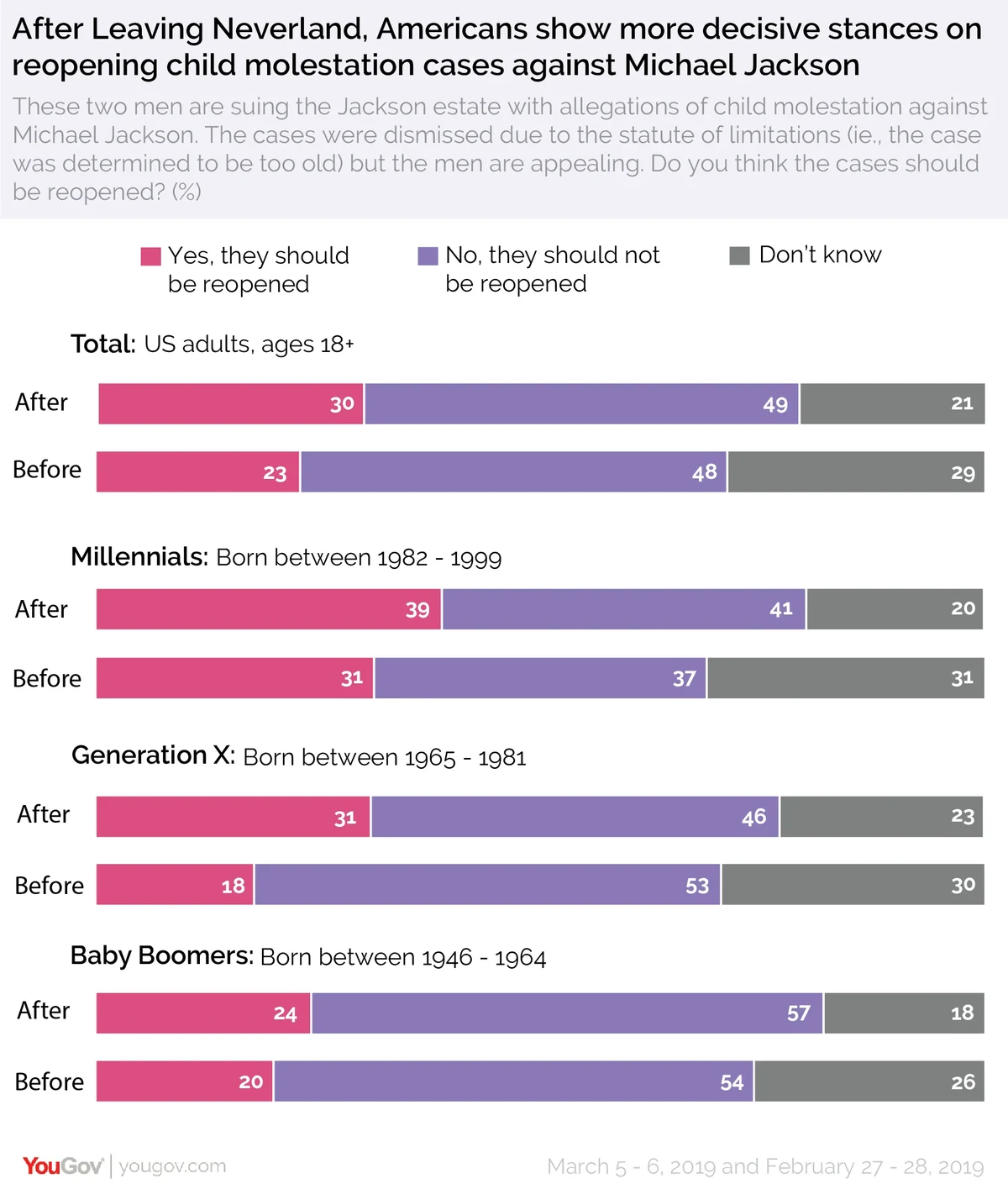Only 13% of people reported watching the HBO special, Leaving Neverland, but 73% have heard about it
Following HBO’s “Leaving Neverland” documentary, almost half of Americans (48%) say that Michael Jackson is likely guilty of child molestation, new YouGov research finds. The number represents a 7 percentage point increase over last week, before the documentary aired, while the percentage of people who believe he’s innocent (19%) remained the same.
The documentary “Leaving Neverland” described the accusations of Wade Robson and James Safechuck, two men who say Jackson molested them in the late 1980s and early 1990s. The men sued the Jackson estate, but the lawsuits were thrown out because of the statute of limitations, which restricts the number of years for taking legal action. Jackson denied multiple allegations of molestation prior to his death in 2009, and his estate has similarly denied these recent allegations.
Nonetheless, the two-part, four-hour documentary aired on March 3 and March 4. While only 13% of people reported watching the HBO special, a further 60% have heard about it. Americans are further split on Jackson’s favorability—37% see him positively, compared to just 33% last week. His unfavorability was 31% between February 27 - 28 and is 34% this week. The percentage of Americans who said they were neutral (neither favorable nor unfavorable) on Jackson shifted from 31% to 27%.
Across generations, Americans also developed more definitive opinions about whether or not the cases against Jackson should be reopened this week. More Americans in each age group believe the cases should be reopened. One in three Americans now (30%) say that cases against Jackson should be reopened, up from 23%, though the plurality (49%) wants them to remain shut.

See the March 5 - 6 YouGov results here, the February 27 - 28 YouGov results here, and learn more about YouGov Omnibus.
YouGov Methodology: Interviews conducted online between March 5 - 6, 2019: total sample size was 1,203 US adults aged 18+, including 406 Millennials (birth year 1982-1999), 334 people from Generation X (birth year 1965-1981), and 355 Baby Boomers (birth year 1946-1964). Interviews conducted online between February 27-28, 2019: total sample size was 1,234 US adults aged 18+, including 401 Millennials (birth year 1982-1999), 335 people from Generation X (birth year 1965-1981), and 390 Baby Boomers (birth year 1946-1964).
Image: Getty








